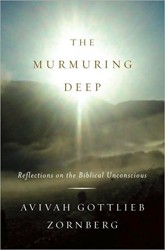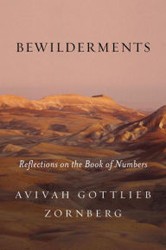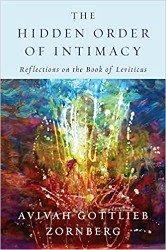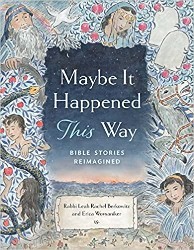The Hebrew Bible is largely silent on the inner life of its characters, leaving their actions to speak for them. In constructing a human life of Moses, prominent Bible scholar Avivah Gottlieb Zornberg turns to a far-reaching range of sources.
“Mi anochi—Who am I that I should go to Pharaoh and free the Israelites from Egypt?” responds Moses when God summons him at the burning bush. Mi anochi? Zornberg takes these words as one of the keys to Moses’ complex and conflicted identity and his painful and personal relation with God. Who is he, son of both an Israelite mother — the mother who bears and suckles him — and an Egyptian princess — the mother who rears him? Who is he, “slow of speech and slow of tongue,” to confront Pharaoh and rally the Israelites? Who is he, prophet, leader, most human of men, prone to anger, bitterness, disappointment; chosen to lead the people for forty years but not allowed to enter the land with them?
To address and explore Moses’s core question, Zornberg opens a trove of sources. The rich narratives of midrash see Moses in many lights, but ultimately he remains an evasive figure. Zornberg calls into play literature and psychology, psychoanalysis and literary theory, trying to feel the otherness of this man uniquely chosen to speak on God’s behalf to a people whose senses are often blocked, who do not comprehend their place in God’s plan. In many ways the reader senses that God, Moses, and the Israelites are caught in hide-and-seek with one another, alternately finding and losing their connection.
Moses: A Human Life challenges readers to see Moses in an original and thought-provoking way — not as a leader or a prophet, but as a man whose disabilities and conflicts make him uniquely qualified to speak for God and to achieve God’s purpose. Only when his nation’s long journey is almost finished does Moses speak to them in his own voice, recalling his memory of the Exodus and journey through the desert. Zornberg illustrates a touching picture of a man whose speech is limited but reaches not only his people — God’s chosen people — but the hopes and future of all humanity. Index, notes.
Related Reads:
Maron L. Waxman, retired editorial director, special projects, at the American Museum of Natural History, was also an editorial director at HarperCollins and Book-of-the-Month Club.





